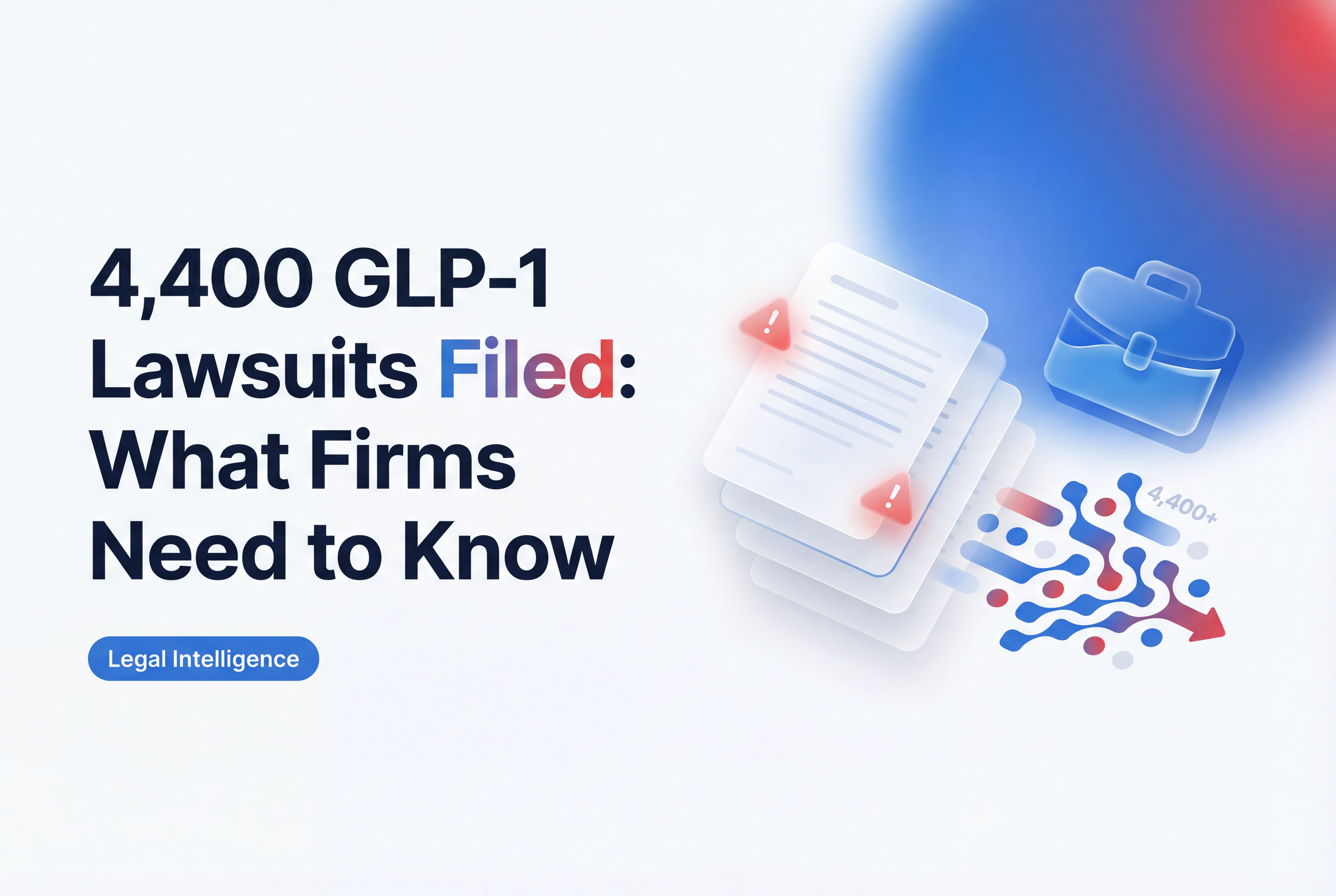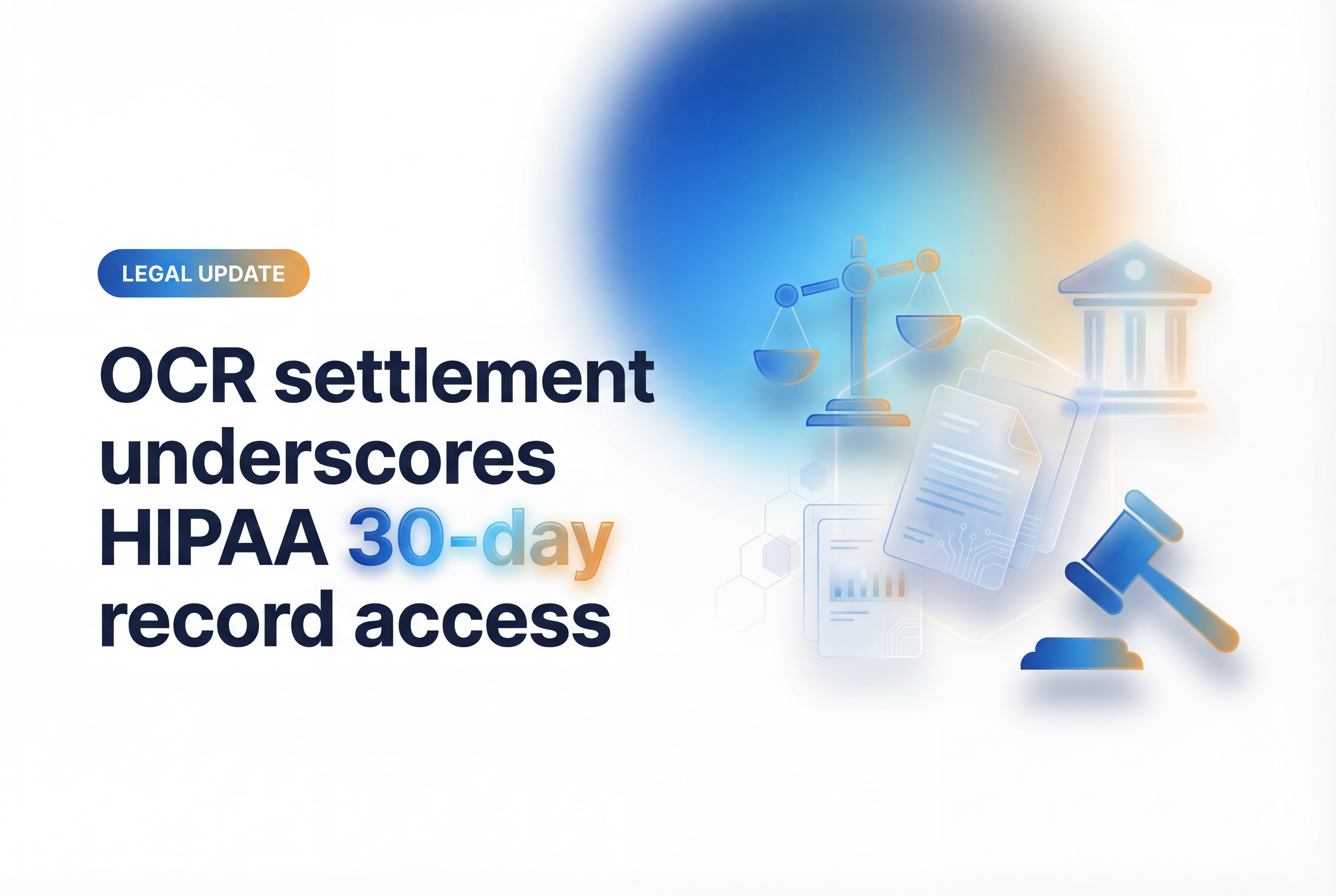Medical Record Costs as Recoverable Case Expenses: What Every Attorney Should Know

Shere Saidon
CEO & Founder at LlamaLab
Medical records are the foundation of many legal cases, from personal injury to medical malpractice. While their importance is undisputed, the costs associated with obtaining these records can be substantial. The good news for attorneys and their clients is that these expenses are typically recoverable as case costs. This article explores the legal framework for recovering medical record expenses, best practices for documentation, and strategies for maximizing recoverability while maintaining ethical compliance.
Understanding Recoverable Case Costs
Let's face it - medical records are expensive, but here's the good news: you can recover these costs. Courts across the country recognize that getting medical records is a necessary part of building your case.
What Qualifies as a Recoverable Expense?
Pretty much all reasonable expenses related to obtaining medical records can be recovered, including:
- Those hefty record retrieval fees
- Per-page copy charges (which can really add up!)
- Certification fees when you need official records
- Costs for organizing and processing records
- Expenses for creating summaries and analyses
I absolutely consider medical record costs recoverable. It helps create efficiency in the process and ensures that necessary evidence is properly obtained.
Former State Court JudgeNortheastern Circuit
Legal Framework for Cost Recovery
When it comes to recovering medical record costs, there are several legal frameworks that support your efforts. First and foremost is your fee agreement with clients. This document should clearly spell out how case expenses will be handled - who advances the costs, when reimbursement happens, and whether expenses are contingent on the case outcome. Being transparent about this from the start sets proper expectations and creates a solid foundation for later recovery.
Court rules and statutes also provide strong backing for cost recovery. Federal Rule of Civil Procedure 54(d) explicitly provides for the award of costs to prevailing parties. Most state statutes include specific provisions for recovering necessary litigation expenses, and local court rules often provide additional guidance tailored to your jurisdiction.
Perhaps most importantly, medical record costs play a crucial role in settlement negotiations. Well-documented expenses strengthen your settlement position and justify higher demands. When you can present a clear, detailed accounting of all case-related expenses, it not only strengthens your negotiating position but also facilitates transparent communication with your client about case economics.
Of court systems accept medical record costs as recoverable expenses
Average untracked medical record expenses per case
Of attorneys report improved settlements with documented expenses
Best Practices for Documentation and Recovery
The foundation of successful cost recovery is meticulous record-keeping. For every medical record request, you should document when it was made, why it was necessary, which provider it went to, and exactly what you paid. Keep confirmation of payment and make notes about how these records relate to your case strategy. This might sound tedious, but it's this level of detail that makes the difference between successful cost recovery and writing off expenses.
Implementing a proper expense allocation system is equally important. Each expense should be tracked to a specific case and client matter. Regular reviews of these expenses help ensure nothing falls through the cracks. Many firms are now turning to automated categorization systems that can dramatically reduce the administrative burden while improving accuracy.
Client communication about expenses shouldn't be an afterthought. Regular updates about case costs, clear explanations of why each expense is necessary, and documentation showing how records advance the case all contribute to a healthy attorney-client relationship. When clients understand the value of these expenses and see how they're being tracked, they're much more likely to appreciate the thoroughness of your representation.
Traditional Approach vs LlamaLab Solution
Traditional Approach
Basic Documentation
Simple receipts and invoices with minimal detail, making cost recovery challenging.
Manual Allocation
Time-consuming manual entry in general ledger with frequent errors.
Limited Client Reporting
End-of-case expense summaries with little context or explanation.
Unpredictable Costs
Variable per-page fees and unexpected charges that are difficult to track and recover.
Hidden & Unpredictable Costs
Per-page fees, rush charges, and surprise bills that blow up your budget
LlamaLab Solution
Complete Documentation
Comprehensive invoices and receipts that clearly document all expenses for easy recovery.
Simplified Tracking
All expenses automatically tracked in one place with clear case allocation.
Transparent Reporting
Clear expense reports that can be easily shared with clients and courts.
Predictable Pricing
Flat-fee structure eliminates surprise charges and simplifies cost recovery.
Flat Transparent, Risk-free Pricing
1 flat fee covers all costs — only pay full price for cases that authorize
Ethical Considerations
Ethics and cost recovery go hand-in-hand in legal practice. The ABA Model Rule 1.5 requires that fees and expenses be reasonable, but what constitutes "reasonable" deserves careful consideration. While traditional approaches often limit record requests to minimize costs, this can actually be counterproductive. Casting a wider net for medical records often leads to better case outcomes and more satisfied clients. When you have a complete picture of a client's medical history, you're better positioned to build a comprehensive case.
The key is having a predictable cost structure that allows for thorough record collection without unpredictable expenses. With a flat-fee approach, attorneys can gather all potentially relevant records without worrying about escalating per-page costs. This comprehensive approach actually serves client interests better than an artificially limited scope that might miss crucial information.
Transparency remains essential in ethical expense management. Fee agreements should clearly explain how expenses will be handled and recovered. Documentation should be detailed and accessible. Regular client updates about case progress should include information about records obtained and their value to the case. And of course, proper trust accounting for advanced expenses is non-negotiable.
When evaluating record retrieval services, consider whether their pricing model aligns with ethical best practices. Services that offer transparent, flat-fee pricing eliminate the conflict between thoroughness and cost control. This alignment of interests ensures that decisions about which records to request are based on case needs rather than cost concerns.
The difference between a good attorney and a great one often lies in their approach to case expenses. The great ones view expense management as a strategic advantage rather than an administrative burden.
Michael ThorntonManaging Partner, Litigation Finance Specialists
Maximizing Cost Recovery Through Technology
Technology has revolutionized how law firms handle expense recovery. Modern solutions offer powerful tools that can dramatically improve your recoverability rates while reducing administrative burden.
Automated tracking systems have become game-changers for busy firms. These systems automatically track expenses by case, generate comprehensive reports with a few clicks, maintain digital receipts that never get lost, and calculate running totals so you always know where you stand. The days of manually entering expenses into spreadsheets are over for forward-thinking firms.
Integrated billing solutions take this a step further by connecting your expense tracking directly to your case management system. This integration means you can generate client-ready expense reports instantly, maintain clear audit trails for every dollar spent, and create documentation specifically designed to support cost recovery efforts.
When it comes to medical records specifically, strategic retrieval services offer significant advantages. The best providers offer transparent, predictable pricing without hidden fees, deliver comprehensive documentation that supports your recovery efforts, use flat-fee structures that eliminate per-page surprises, and generate detailed invoices that courts readily accept for cost recovery.
How LlamaLab Enhances Cost Recovery
We've built LlamaLab's platform with cost recovery as a core design principle. Our transparent pricing model uses a clear, flat-fee structure that's straightforward to document and recover. No more explaining variable per-page charges or surprise fees to clients or courts.
Our detailed invoicing system generates comprehensive documentation that satisfies even the most stringent court requirements for cost recovery. Each invoice clearly shows what was ordered, when, and why, creating a paper trail that supports your recovery efforts.
We've also built in purpose documentation that automatically tracks the relevance of records to your case strategy. This makes it easy to explain why each expense was necessary and reasonable - a key factor in successful cost recovery.
Our system simplifies cost allocation across cases and clients, eliminating the administrative headache of manual tracking. And our documentation is specifically designed to strengthen settlement demands by clearly connecting expenses to case value.
Request Records
Submit requests with purpose documentation and case allocation.
Receive & Track
Records delivered with detailed expense documentation.
Allocate & Report
Expenses automatically allocated and reported to client.
Recover Costs
Comprehensive documentation supports full cost recovery.
Case Study: The Hidden Cost of Untracked Expenses
Let me share a story we see play out all the time. A successful personal injury firm was diligent about tracking their major case expenses but had set up "auto pay" for smaller medical record charges. They figured these $15-75 charges weren't worth the administrative time to track individually. It seemed reasonable - after all, who wants to spend time logging a $25 charge?
When we helped them implement comprehensive expense tracking, they were shocked by what they found. Those "small" charges added up to over $500 in missed expenses on EACH case. Across their entire caseload of 90 active cases, that represented more than $45,000 annually that they weren't recovering. Money that was literally walking out the door.
The solution was simple but transformative. They started tracking every expense, regardless of size. Their bookkeeper spent about 30 minutes each week reconciling all auto-pay charges to specific cases. The result? They began recovering thousands more each month with minimal additional effort.
Think about it this way - would you walk past a $500 bill lying on the sidewalk? That's essentially what happens when you don't track these expenses. Small charges accumulate into significant amounts that directly impact your bottom line when left unrecovered.
Conclusion
Medical record expenses represent a significant but recoverable cost in litigation. By implementing strategic documentation, allocation, and recovery practices, attorneys can ensure these expenses are properly recovered while maintaining ethical standards and client trust. The investment in proper expense management not only improves firm profitability but also enhances client service and case outcomes.
Optimize Your Cost Recovery
Discover how LlamaLab can help you maximize the recoverability of your medical record expenses.
Want to learn more about optimizing your case expense management? Contact us for a personalized consultation on how LlamaLab can transform your approach to medical record expenses.
At LlamaLab, we've engineered our platform to be a FULLY recoverable case cost. With our system generating the documentation you need, recovering your retrieval costs is also incredibly easy. Contact us today to learn how.
Stay Updated with Latest Insights
Get the latest articles about medical record retrieval and legal tech delivered to your inbox.


